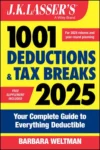Employee Business Related Expenses You Can Deduct without Itemizing
Employees cannot deduct most business-related expenses because they are miscellaneous itemized deductions subject to the 2%-of-adjusted gross income (AGI) floor and this write off has been suspended through 2025. But some business expenses of employees remain deductible. Keep these in mind.
1. IRAs
You need earned income—from a job or self-employment—to make contributions to an IRA. If you are not subject to the income-based phaseout, you can deduct IRA contributions as an adjustment to gross income (whether you claim the standard deduction or itemize). For 2019, the contribution limit is $6,000, plus an additional $1,000 if you are at least 50 years old by the end of the year.
2. Impairment-related work expenses
An employee with a physical or mental disability can deduct the cost of an attendant and other employment-related costs. Yes, you have to itemize. But no, the deduction is not barred through 2025 because it is not a miscellaneous expense subject to the 2% AGI threshold.
3. Education costs
Certain job-related education may entitle you to an education tax credit: the American Opportunity credit or the lifetime learning credit.
Alternatively, you may be eligible to deduct tuition and fees as an adjustment to gross income; no itemizing is required. This deduction expired at the end of 2017, but could be extended for 2018 and even 2019.
4. Performing artist expenses
Those who meet the definition of a performing artist can deduct work-related expenses as an adjustment to gross income; no itemizing is required. A qualified performing artist is one who:
- Performed services in the performing arts as an employee for at least two employers during the tax year,
- Received from at least two of the employers wages of $200 or more per employer,
- Had allowable business expenses attributable to the performing arts of more than 10% of gross income from the performing arts, and
- Had adjusted gross income of $16,000 or less before deducting expenses as a performing artist.
Note: The category of performing artists was created by the Tax Reform Act of 1986 and the $16,000 AGI limit has not been changed since then.
5. Reservist expenses
A member of a reserve component of the Armed Forces of the United States who travels more than 100 miles away from home in connection with the performance of services as a member of the reserves can deduct some travel expenses as an adjustment to gross income. Again, no itemizing is required.
The amount of expenses deductible as an adjustment to gross income is limited to the regular federal per diem rate (for lodging, meals, and incidental expenses) and the standard mileage rate (for car expenses), plus any parking fees, ferry fees, and tolls.
6. Statutory employee’s expenses
A person may be treated as an employee for purposes of reporting income on Form W-2 and being subject to FICA taxes, while being eligible to deduct work-related expenses as a self-employed individual on Schedule C. A statutory employee includes:
- A driver who distributes beverages (other than milk) or meat, vegetable, fruit, or bakery products; or who picks up and delivers laundry or dry cleaning and is the company’s agent or is paid on commission.
- A full-time life insurance sales agent whose principal business activity is selling life insurance or annuity contracts, or both, primarily for one life insurance company.
- An individual who works at home on materials or goods supplied by the company and that must be returned to the company. The company can furnish specifications for the work to be done.
- A full-time traveling or city salesperson who works on a company’s behalf and turns in orders to the company from wholesalers, retailers, contractors, or operators of hotels, restaurants, or other similar establishments.
Conclusion
Bottom line: despite the ban on deducting unreimbursed employee business expenses as a miscellaneous itemized deduction through 2025, all is not lost. There continues to be deductible business-related expenses for some employees.



